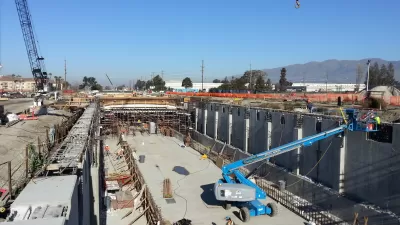Earlier this month marked the ten-year anniversary of an event that lives in infamy in the annals of the federal government.

On September 5, 2008, "the U.S. Department of Transportation made the stunning announcement that the federal Highway Trust Fund had run out of money and that state governments would no longer be guaranteed speedy reimbursement for the federal-aid highway expenses that the states had already incurred," according to an article by Jeff Davis. "The announcement prompted an immediate $8 billion bailout by Congress in the form of a transfer of moneys from the general fund of the Treasury to the Trust Fund."
Since that time, Congress has not implemented a sustainable solution to the structural flaws of the Highway Trust Fund. On the contrary, explains Davis, "Congress has instead provided another $135.6 billion in bailouts, for a total of $143.6 billion ($139.9 billion from the general fund and $3.7 billion from gasoline and diesel taxes originally deposited in a different trust fund)."
The remainder of the article discusses the history and details of the beleaguered Highway Trust Fund along several threads of discussion. In a lot of detail, the post discusses "how to" bankrupt the Highway Trust Fund, the consequences of bankrupting the Highway Trust Fund, and the "path of least resistance" likely to determine the future of the Highway Trust Fund for the foreseeable future.
FULL STORY: Ten Years of Highway Trust Fund Bankruptcy: Why Did It Happen, and What Have We Learned?

Maui's Vacation Rental Debate Turns Ugly
Verbal attacks, misinformation campaigns and fistfights plague a high-stakes debate to convert thousands of vacation rentals into long-term housing.

Planetizen Federal Action Tracker
A weekly monitor of how Trump’s orders and actions are impacting planners and planning in America.

In Urban Planning, AI Prompting Could be the New Design Thinking
Creativity has long been key to great urban design. What if we see AI as our new creative partner?

King County Supportive Housing Program Offers Hope for Unhoused Residents
The county is taking a ‘Housing First’ approach that prioritizes getting people into housing, then offering wraparound supportive services.

Researchers Use AI to Get Clearer Picture of US Housing
Analysts are using artificial intelligence to supercharge their research by allowing them to comb through data faster. Though these AI tools can be error prone, they save time and housing researchers are optimistic about the future.

Making Shared Micromobility More Inclusive
Cities and shared mobility system operators can do more to include people with disabilities in planning and operations, per a new report.
Urban Design for Planners 1: Software Tools
This six-course series explores essential urban design concepts using open source software and equips planners with the tools they need to participate fully in the urban design process.
Planning for Universal Design
Learn the tools for implementing Universal Design in planning regulations.
planning NEXT
Appalachian Highlands Housing Partners
Mpact (founded as Rail~Volution)
City of Camden Redevelopment Agency
City of Astoria
City of Portland
City of Laramie




























